HISTORY OF OUR INDUSTRY – MEXICO PART 1
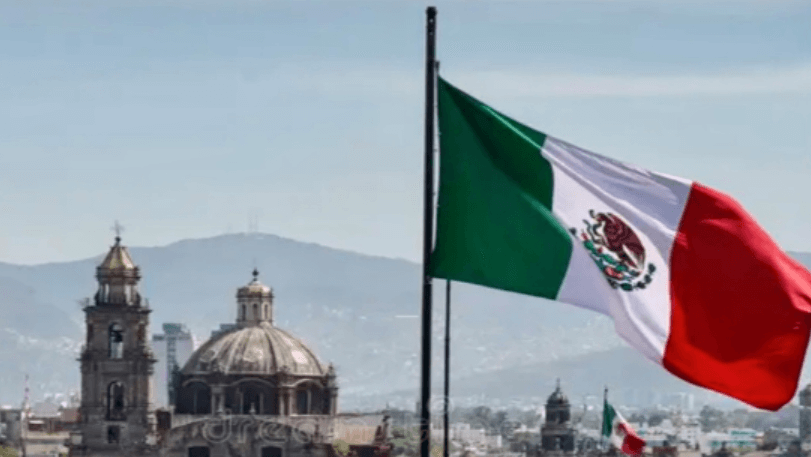
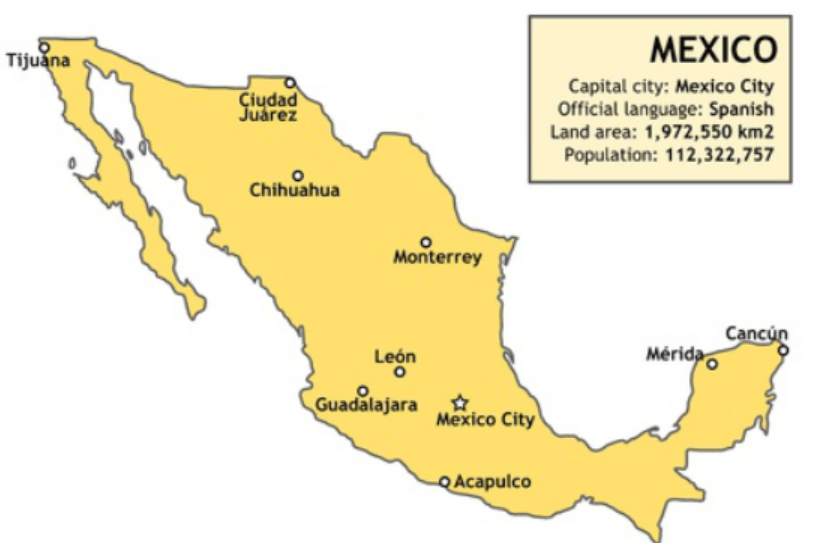
Our industry expanded throughout the world at various times based on the needs of that particular area. In some areas, trade and transportation introduced portable sanitation as a new industry. In other areas, the need to conserve fresh water made portable sanitation a viable solution. Tourism and international visitors grew our industry in other parts of the world. In other countries, economic growth initiated the need for our products because of commercial construction, home building, and development. Mexico has an interesting history of portable sanitation as will be shown.
Mexico – 1960s to 1980s
Mexico experienced rapid growth during this twenty-year period. In fact, economists have labeled the period from the beginning of the 1960s to the early 1980s as the “Mexican Economic Miracle.” From 1960 to 1979, the Mexican economy grew at an average rate of 6.9% per year. The government promoted domestic manufacturing and reduced dependence on imports. In addition, construction, mining, and transportation infrastructure grew. The need for portable sanitation grew as the economy grew.
1968 Summer Olympics

After bidding for the Olympic Games in both 1956 and 1960, Mexico City was awarded the 1968 Summer Olympic Games on October 18, 1963. The construction industry in Mexico began to expand almost immediately and remained strong for the next 5 years.
Held from October 12-27, 1968, these Olympic games had many notable achievements:
-
World Records – Mexico City is located at an altitude of 7,349 feet and the thin air assisted in many new world records being set – 9 for the Men and 5 for the Women. FYI … Denver, Colorado, the “Mile High City” sits at an altitude of 5,280 feet.
-
First Synthetic Track in Olympic Competition – improved safety, consistent surface for predictable and reliable performance, improved grip even during wet conditions.
-
First Olympics are available with color tv cameras for those around the world to view if they owned these modern devices.
-
First Olympics to conduct drug testing of athletes.
Some 21of the 23 Olympic venues constructed are still in use today. The entire country saw a surge in tourism as a result of these Olympics.
Interesting Fact: John Vande Velde, PSAI President 1977-78, was also a 2-time Olympian in Cycling. He participated in these Olympics in 1968 as well as in the 1972 Summer Olympics in Munich.
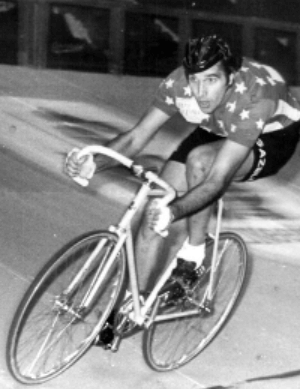
Oil Boom – Late 1970s
The discovery of large oil fields led to increased production and exports. Mexico borrowed considerable sums from foreign banks to finance this growth. The population surge in the Mexico City Metro Area grew from 9 million in 1970 to 14 million in 1980.
Early 1980s: BEGINNINGS OF OUR INDUSTRY
The portable sanitation industry began in earnest in Mexico in the early 1980s. Many interesting details will be shared below by two of early participants, who, in their own words, capture the essence of this era in their country’s history.
Mid 1980s – Major Destructive Earthquakes
On the morning of September 19, 1985, a horrific 8.0 magnitude earthquake struck Mexico. The epicenter was in the State of Michoacan some 220 miles south of Mexico City. Incredibly, tremors of this catastrophic quake were felt as far north as Houston, Texas and as far west as Los Angeles, California.
The following day an aftershock registering 7.5 caused further destruction throughout the area. The estimated damage at that time was:
-
412 buildings collapsed, another 3,124 were damaged.
-
Deaths are estimated at between 5,000 and 10,000 (although some estimate more)
-
Estimated damage $5 billion (1985 values)
Unbelievably, some seven months later, on April 30, 1986, a 7.0 magnitude aftershock also hit this area.
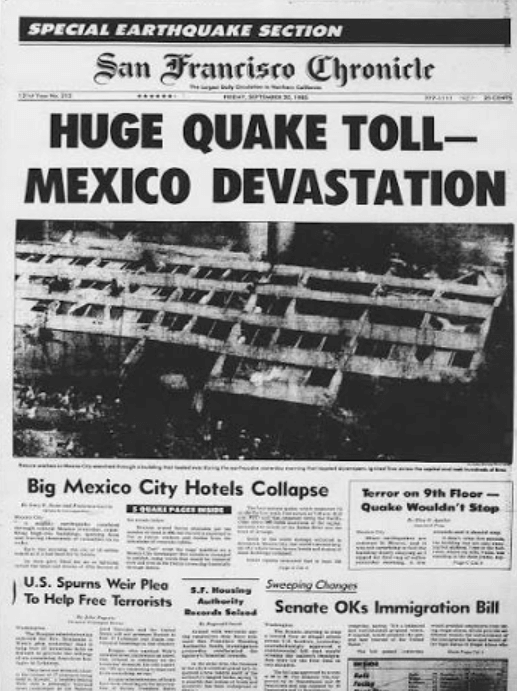
This new industry in Mexico was tested as a result of these events. Portable restrooms for both those adversely affected by the earthquakes as well as the recovery and construction groups were vital in this disaster.
Major Events in Mexico After the Olympics
Several large, worldwide special events in the country were successfully handled by the various restroom operators involved and this further expanded the special event market. Some of these events were:
-
1986 WORLD CUP SOCCER
-
2011 PAN AMERICAN GAMES
-
PAPAL VISITS
-
Pope John Paul II – 1979, 1990, 1993, 1999, 2002
-
Pope Benedict XVI – 2012
-
Pope Francis – 2016
-
First-hand accounts of some of these events will be shared below.
PSAI Member Companies Through the Years
Since 1971, the PSAI has continued to be a resource to companies throughout the world. From the sharing of information, education, and training, our Association can be an integral part in the success of both Operator and Supplier companies. Mexico is one of the countries that has benefitted from PSAI Membership. As the industry began in this country in the early 1980s, so did their membership in the Association. Here are the dates of first joining the PSAI and Membership renewal has continued through the years since:
PSAI Year End 1985 Newsletter - Sanirent
Founded in 1983 in Mexico City
Key Contact: J Gomez, CFO & President
PSAI July- August 1999 Newsletter – Sanitarios Portatiles
Hermosillo, Mexico
Jose Luis Carranza
PSAI Year End 1999 Newsletter – Escumovil
Zapopan, Jalsico
Juna Pablo Martin
PSAI May-June 2003 Newsletter – Sanitarios Del Desierto SA de CV
Hermosilla, Sonora
Jose Carranza
PSAI July-August 2007 Newsletter – Sani Movil De Mexico
Founded in 1987 in Mexico City
Key Contact: David Vazquez
Some 20 years later, in March 2012, PSAI Operator Members from Mexico included:
-
SaniProf Mexico – Contact: Saul Villa Sanchez
-
Sanirent – Contact: Raul Lopez Barrera
-
Sanitarios y Quimicos de Mexico – Location: Cuauhtemoc Chihuahua
-
WC Movil – Contact: Angel Romero Hurtedo
Sharing of the Industry’s History
There are many successful, professional, and dynamic portable restroom companies in Mexico with interesting histories to share. In this article, two individuals offered to share the history of their companies. Their thoughts about their companies help to portray the magnificence of the entire industry in Mexico. More companies’ stories will be shared in the next article to follow.
The two individuals who will be sharing their stories are:
-
Guillermo Beltran Sierra – Gerencia, Five Peaks, Mexico. Guillermo spent 13 years with Saniver (2000-2013) and has been with Five Peaks since 2013.
-
Raul Lopez Barrera– Director Regional, Sanirent. Raul has been with Sanirent since 1997 and is approaching 29 years with the company.
Here is the information that each would like to share in their own words:
Guillermo Beltran
“Probably the first company of this type in Mexico was "SANIPORT," although it's possible that this was only its commercial name and not its legal name. It was located in the municipality of Naucalpan, State of Mexico. The owner I knew was Mrs. Linda White. She had experience in this type of business through her husband, who had a similar business in the USA.
Later, in 1985-86, Linda partnered with José Gómez Cañibe and founded "Sanirent," one of the largest portable toilet companies in Mexico. Raúl López Barrera is currently the director of that company, and they have ventured into other areas of waste management, such as urban and industrial waste collection.
I would like to tell you that my father, Engineer Eduardo Beltrán Adame, was also one of the first to start the portable toilet business in Mexico. In 1983, Engineer Eduardo Beltrán Adame opened his own company, which he called "DESER" (Sanitary Deposits for Rent) in the state of Veracruz, Veracruz.
His budget was tight, and at the time, he only had one truck (which he named "The Green Dragon," due to the color of the truck and the noise it made when the vacuum pump was turned on). He had approximately 150 fiberglass toilets made by a company that makes fishing boats. For the collection and cleaning of the toilets, he had a driver and an assistant ("Pancho, the driver," and "Saúl, the assistant"); they were his first workers.
His first contract was with TAMSA (Tubos de Acero de México), which was building its second steel pipe production plant in the port of Veracruz at the time.
A year later, he began working with the construction company Bufete Industrial on the Laguna Verde nuclear power plant construction project. They contracted 150 toilets with three cleaning services per day, seven days a week. It was at this point that the company consolidated its position and began its growth, positioning itself as the leading portable toilet rental company in the state of Veracruz. It now has three units for cleaning services, six employees, and more than 300 toilets. It also performed septic tank cleaning.
The beginning wasn't easy. Many obstacles had to be overcome, as it wasn't common to see this type of toilet on construction sites. There were no toilet manufacturers, and they were purchased by individuals or companies that worked with fiberglass. Several models were designed, including the traditional square ones with the tank as a seat, reinforced with wood or steel profiles for strength. Years later, Engineer Eduardo designed an oval toilet that was self-structured due to its shape and helped prevent the winds of the "norte" season in Veracruz from knocking them over.
The business began to grow, and more and more portable toilets could be seen on construction sites for homes and businesses. Other companies that rented these services, which helped with the growth, included Astilleros Unidos (currently Tallares Navales de Veracruz), Internacional de Contenedores Asociados de Veracruz (ICAVE), Tubos de Acero de México (TAMSA), Aluminio, the Federal Electricity Commission (Comisión Federal de Electricidad) with the Laguna Verde project, and Global, currently COMESA, among many others.
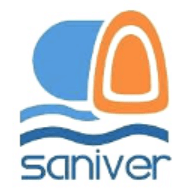
In 2000, the company decided to change its name from DESER to SANIVER, a name it still uses today. It has branches in Zacatecas, Mérida, Puebla, and Morelos. Saniver's current directors are Omar and Eduardo Beltrán Sierra.
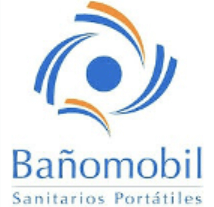
Another company in this business, and one of the founders, is Bañomobil. It began operations in Mexico City in 1982. Its founder is Ricardo Moreno Guerrero.
They began manufacturing portable toilets for the Federal Electricity Commission (CFE) under the name "Arquitectura y Diseño en Plástico Reforzado" (Reinforced Plastic Architecture and Design). They later offered toilet rental services for various construction projects and registered the name Bañomobil to provide their rental services and differentiate it from the fiberglass factory. They specialized in large-scale events and began expanding to the northern part of the country and parts of the Bajío region. They later expanded to southeastern Mexico, eventually covering all major cities. Currently, the director of this company is Miguel Angel Moreno.
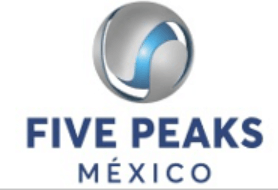
More recently, in 2013, the company Five Peaks Mexico began operations. Its founders, D.I. Angélica Cardoso Landa and D.I. Guillermo Beltrán Sierra, began selling Five Peaks brand portable toilets manufactured by Ameriform, whose director was Dan Harris, located in Muskegon, Michigan. With the help of Chris Davis as our liaison with Ameriform and account executive, we began importing the first equipment for storage and sale with immediate delivery in Mexico, distributing throughout Mexico. We managed to position 997 units in the first year of sales. Subsequent years were much better, reaching sales of up to 2,000 units per year. At the same time, we began distributing Masport brand vacuum equipment with the advice of John Gilbert. Surco brand portable toilet chemicals manufactured by Alpha Aromatics with the advice of Tonya Ray and currently Marcy Kelley, achieving an excellent presence throughout Mexico.
In 2016, we entered the portable toilet rental market in the state of Veracruz. In 2019, Ameriform sadly closed its doors, leaving a tremendous void in the Mexican toilet market. The models and brands were acquired by Satellite, who currently offer a similar model to the Aspen.
Five Peaks Mexico has 15 employees, 5 trucks, and more than 400 portable toilets and continues to distribute the Masport and Surco brands in Mexico.”
Raul Lopez
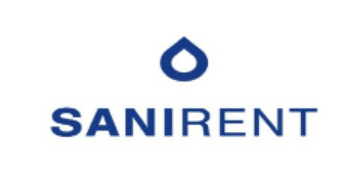
“We were not the first company to offer this type of service in Mexico, but we were the first company to develop this business nationwide, strategically positioning the brand in the minds of all our customers.
Sanirent was formed in 1983 under the name of Renta de Sanitarios Portatiles, and it was in 1986 when it changed its name to Sanirent de México, in its beginnings it began with 100 toilets and two service trucks and one delivery truck.
During the 80's Sanirent expanded to the city of Monterrey with which it covered the northern area of the country, from there we went to the southeast where we were a very important player in the development of Cancun, one of the main cities of Mexico today.
After success in the southeast area, where we also worked in the development of the entire oil industry of the country. During those years, the industry was in a boom phase and, Sanirent was located in most important oil wells that “PEMEX” began to exploit.
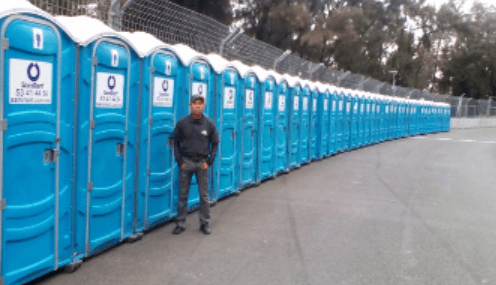
The decade of the 90s was a time of contrasts the firsts years were great and fixed income from our toilet rents allowed us to participate in the development of the country by opening branches in the western area and the Bajío. But after 1994 we found one of the most severe crises in Mexico’s history, which forced Sanirent to transform itself into a multi-service company and offering different services in order to continue with its growth and development, it was how we entered the market of mobile office rental and the cleaning of drains and drainage networks.
Below is a list of events that were very important for Sanirent and for the development of the portable toilet industry in this country.

Different Visits of His Holiness the Pope to Mexico
-
Sanirent has been proud to participate directly in most of the visits that His Holiness the Pope has carried out in our country, the challenge of this work is to attend to a large number of believers, days before the date of the event and in very important numbers gathered in one place. Carrying out cleaning services with so many people congregating requires planning par excellence since the routes of entry and exit as well as schedules are extremely complicated.
-
In 1990 Pope John Paul II visited different cities throughout the country, Sanirent participated directly in the cities of Mexico, Puebla, Monterrey, Guadalajara, Valle de Chalco, and Cuautitlán. The biggest challenge was to attend to all the believers who were located along the entire highway from Mexico City to Puebla. The masses in Chalco and Cuautitlán were with more than 100,000 people each.
-
In 1999 the largest congregation to that date was held at the Autódromo Hermanos Rodríguez. Where more than 1,000,000 people attended, Sanirent manufactured special equipment for this great event, and more than 2,000 units were installed. The great achievement was to keep the equipment working despite the crowds, in the end we were recognized by both the government and the Vatican representation in our country.
-
In 2002 His Holiness visited Mexico City again and this time we had to attend Mass in the Basilica of the Virgin of Guadalupe, for several days before the event there were people waiting for the arrival, it is estimated that there were more than 500,000 people gathered constantly.
-
In 2012 Pope Benedict XVI visited the cities of Guanajuato, Silao and León where we were also present in several events that took place, on this occasion the participation of Sanirent was 40% of the total equipment installed.
-
In 2016 Pope Francis visited Mexico, on this visit Sanirent attended the events that took place in Mexico City and Morelia Michoacán.
-
As a result of these visits, Sanirent was able to grow in terms of inventories and service equipment, since the needs for the number of people who came to the congregations were very important.
-
We can say that Sanirent has grown hand in hand with the Pope.
Pan American Games Guadalajara 2011
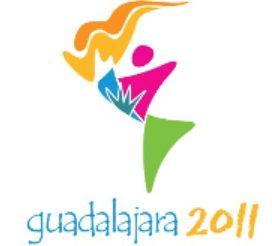
- The Pan American Games are the largest games held in the American continent after the Olympic Games, since they bring together a large number of athletes, officials, judges, coaches, managers and personnel from different governments, but the most important thing is the large number of spectators who come to the different venues where the different sports disciplines take place.
- Sanirent was chosen among several companies to be the company that will install, operate and remove in a timely manner the portable toilets as well as the mobile offices that were required throughout the process that these games took, that is, before, during and after the event.
- Sanirent installed more than 450 portable toilets (Standard, Flush, VIP and for people with different abilities), we also installed more than 70 mobile offices for production and television people.
- Together with the Organizing Committee we participated from day one in the planning and programming of these services, in the end we had a very successful result in every way since the games were rated as the best in recent years.
- One of the great advantages we had was having our own facilities near most of the headquarters, from where we were able to deliver and operate in a timely manner. And if there were any setbacks, we always had the capacity to respond on behalf of our staff, we worked 24 hours a day. with three well-organized shifts to meet customer expectations and ensure quality of service for users.
- On the subject of mobile offices it was a challenge since at that time the use of these was not very common so we had to work from a year before in the programming of the delivery of these, there were difficult times and situations, but they were overcome thanks to teamwork.
- Sanirent learned a lot from this event, I am sure that it made us a better company in every way, we learned that coordinated work between the client and the supplier always leads to good results, we also learned to be patient since many times our emergencies were not the same as those that the client had or perhaps what was not important to us was everything for our client. That is why we also ended up installing a water treatment plant in the Olympic Village, which was requested 10 days before it was opened for the athletes.
- That is why I can say that communication with the client is essential in this type of event and the responsibility on our part must be total, no mistakes are allowed in an event of this magnitude.
Formula 1 Grand Prix CDMX (2015-2025)
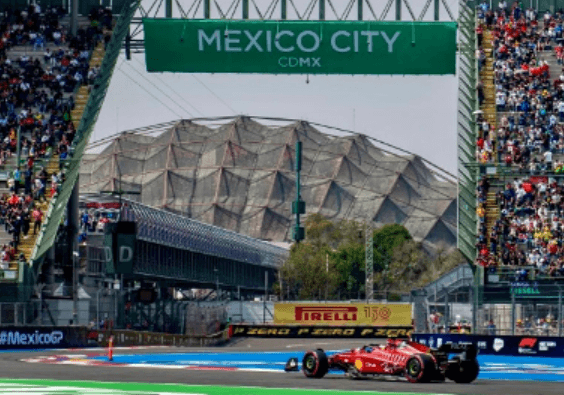
-
Sanirent has participated every year in the celebration of the CDMX Grand Prix, the installation of the teams has grown considerably lately since the Mexican driver Sergio Perez has participated, the average number of attendees for the three days of the event exceeds 100,000 attendees per day, reaching up to 140,000 in a single day.
-
In these events, Sanirent has installed all kinds of toilets, from the simplest to the most luxurious, which are used by the sponsors of the event. This is where luxury campers began to be assembled.
-
In the first two years Sanirent was responsible for 100% of the service for all the equipment installed, then by the decision of our client he decided to invite other companies to share the responsibilities of the work. What is important to highlight is that we are the only company that has participated consistently during the 10 years that this event was held.
-
Like many other events in which we participate, communication with our clients is fundamental to success, and the work sessions begin a week after the previous event ends.
-
In this event we also participated with the rental of mobile offices, office containers and of course all types of toilets.
-
The CDMX Grand Prize has been awarded as the best F1 event in the last 4 years, and this is only possible with the joint participation of suppliers and organizers.
-
And the challenge in the quality of service is increasing as well as the expectations of our client, the commitment of the staff of this company is what keeps us satisfied.
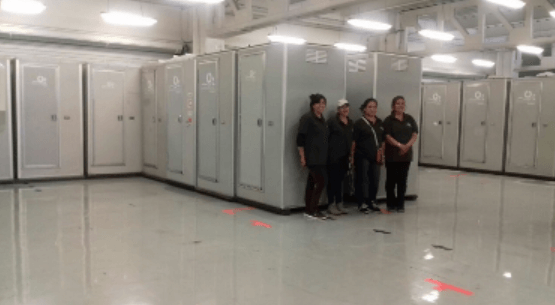
Thanks to all these events and the experience accumulated during all these years was that we were chosen to develop a project of luxury portable toilets in the GNP stadium in Mexico City, these toilets have a capacity to serve up to 21,000 people, and the condition was that they could be dismantled to give opportunity to car racing events including the F-1 which was a challenge for the development of the Project.
Today we can say that we are one of the leading companies in Mexico and that we have witnessed the development of the portable toilet industry,
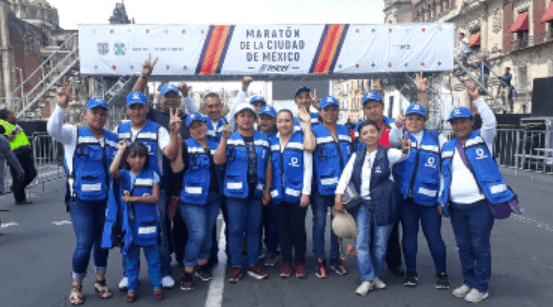
Sanirent's curriculum and history throughout these 43 years has been vast and which puts us in a position that hardly any other company in Mexico has.
FINAL THOUGHTS – PART 1
As is the case in each part of the world that we examine the origins of our industry, Mexico has a unique history – one that is interesting and inspirational. From the 1968 Olympics beginning the tourist industry to the oil boom in the 1970s beginning increased construction and economic development to the massive earthquake in the mid-1980s solidifying the need for portable sanitation in times of natural disaster, the Operators and Suppliers in Mexico have met – and exceeded – all expectations.
PART 2 – “DESARROLLOS Y SERVICOS VIVA” WILL SHARE THEIR STORY ALONG WITH MORE ACCOUNTS OF THE HISTORY OF PORTABLE SANITATION IN MEXICO
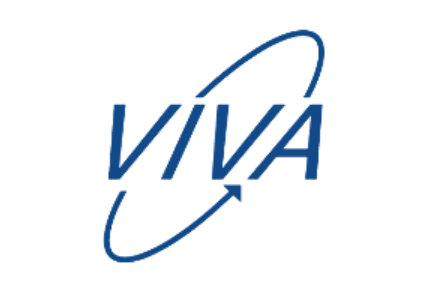
Ricardo Valles, Sr founded Viva in 1989 with 10 units and a vision for the future. Today his sons, Ricardo, Jr and Andres are second generation owners of this amazing company. They will share their company’s history as well as their thoughts on the industry in Mexico today.
MEXICO TO HOST A FUTURE PSAI EVENT IN MARCH 2026
The PSAI will be meeting in March 2026 in Playa del Carmen for the PSAI EDGE Summit and we hope to see and to experience the wonder of our industry in Mexico in person.

